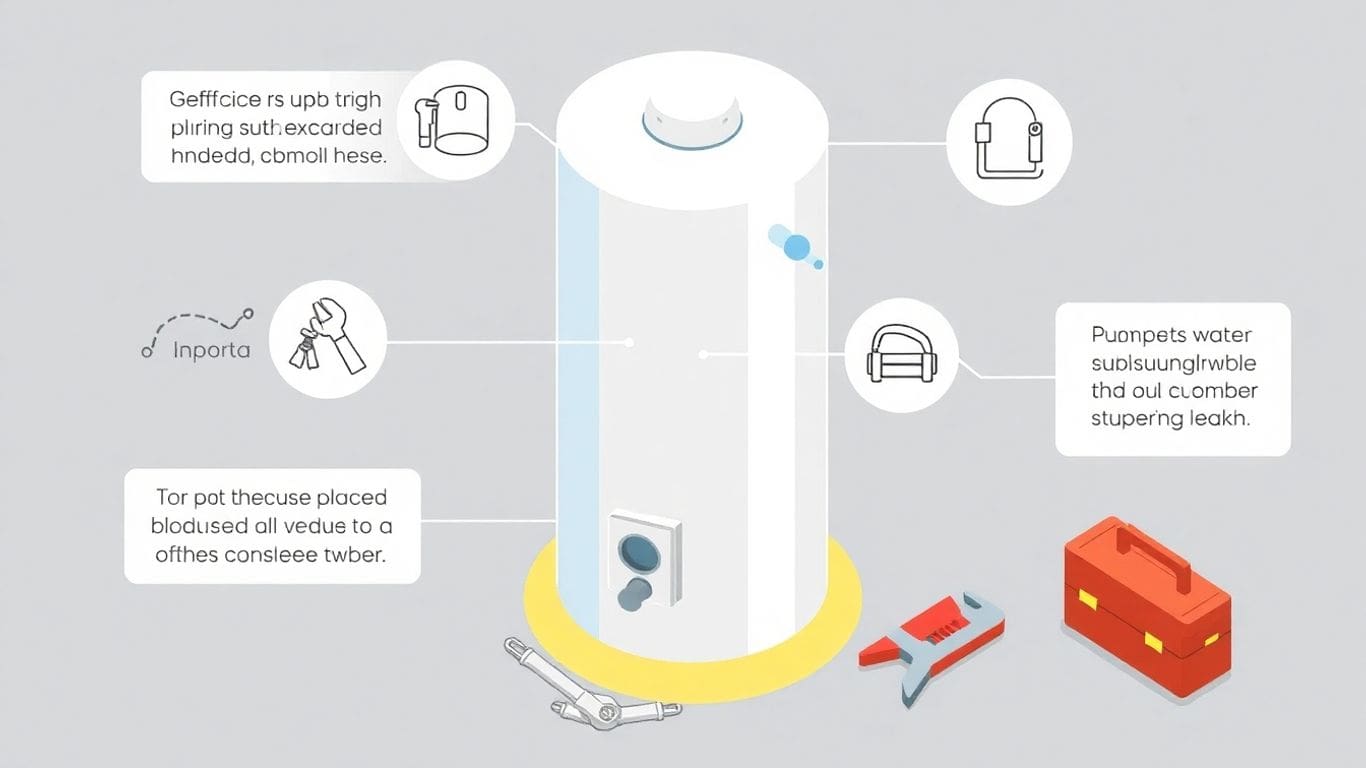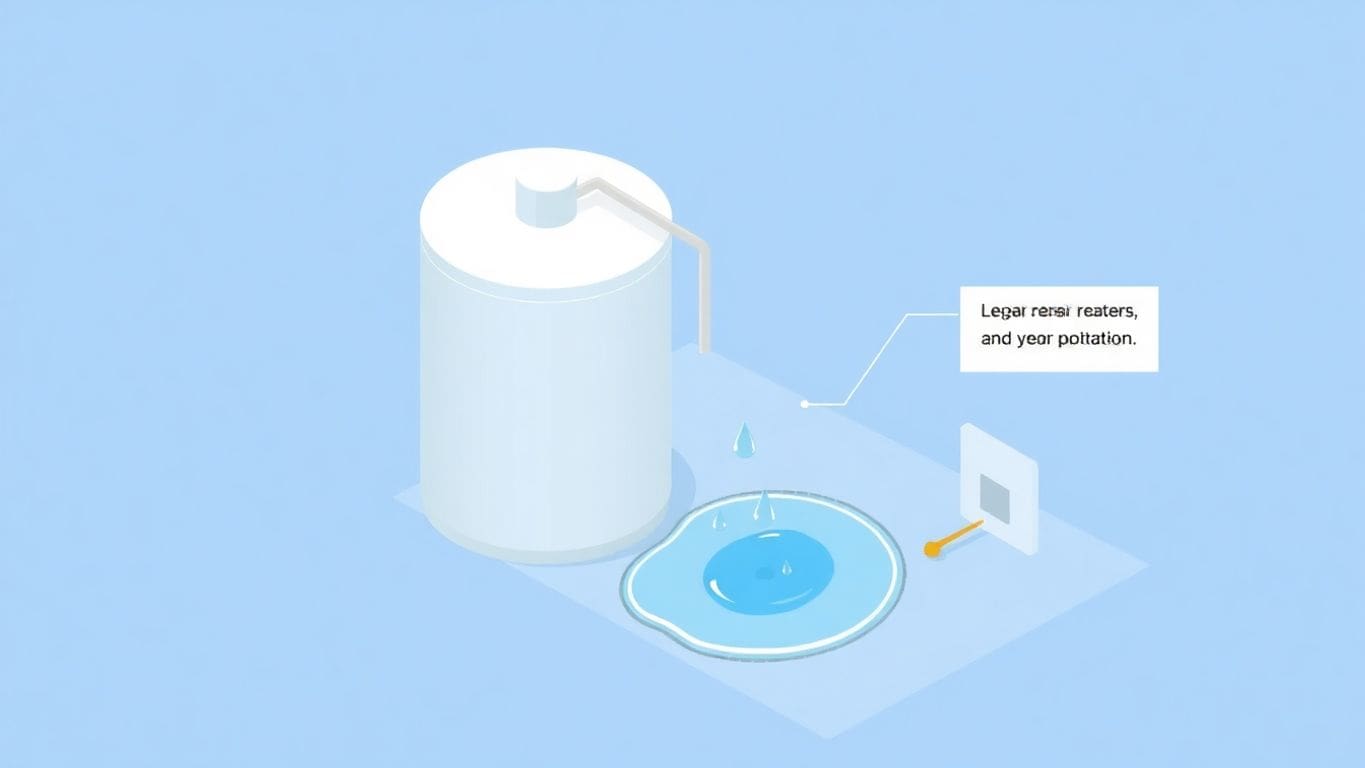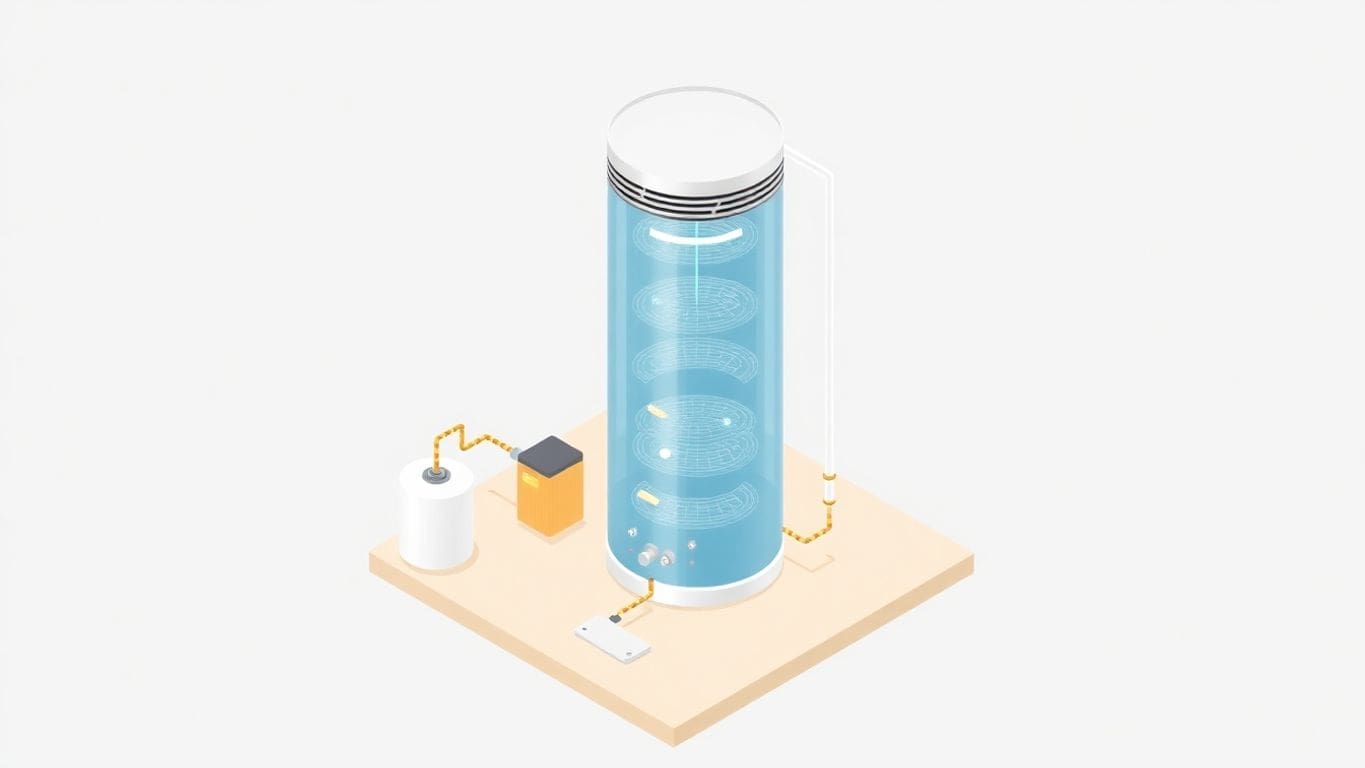
When the lights go out, knowing whether your water heater will still work is important. The answer largely depends on the type of water heater you have. Electric models won’t work without power, while some gas and oil heaters might still provide hot water. In this article, we’ll break down how each type of water heater behaves during power outages so you can be prepared.
When the power goes out, it’s good to know if you’ll still have hot water. The type of water heater you have makes a big difference. Some work without power, but others don’t. Let’s look at the main types and how they handle blackouts.
Electric water heaters need electricity to work. If the power is out, they won’t heat any more water. The water in the tank will stay hot for a while because of the insulation, but it will eventually cool down. It’s like a big thermos; it keeps things warm, but not forever.
Gas water heaters can be a bit different. Older models have a pilot light, which is a small flame that’s always on. These can still work during a power outage because they don’t need electricity to ignite the gas. However, newer gas water heaters often use electronic ignition. This means they need electricity to start the burner. If the power is out, these models won’t work unless you have a battery backup.
Solar water heaters use the sun to heat water. If it’s a sunny day, they can still heat water even if the power is out. However, some solar heaters have electric pumps that move the water around. If your system has these pumps, it won’t work without power unless you have a backup system. So, sunlight is key, but electricity might still be needed.
Electric tank water heaters are common, but what happens when the power goes out? Let’s look at how these heaters work when there’s no electricity.
Electric tank water heaters need electricity to work. They use electric heating elements to heat the water in the tank. Without power, they simply can’t heat any more water. It’s pretty straightforward.
When the power goes out, your electric water heater stops heating. The water already in the tank will stay warm for a while because of the insulation. But, over time, it will cool down. So, you’ll only have hot water for a limited time. It’s not ideal, but that’s how it is.
If you often have power outages, you might want to think about getting a backup system. Here are some options:
Getting a backup system can be a good idea if you really need hot water all the time. It might cost some money, but it can be worth it for the peace of mind.
Gas tank water heaters are a common choice for many homes. But what happens when the power goes out? It depends on the type of gas water heater you have. Let’s look at what you can expect.
Older gas water heaters often have a pilot light. This is a small flame that constantly burns. It ignites the main burner when hot water is needed. If you have a pilot light model, it might still work during a power outage. Since it doesn’t need electricity to ignite the gas, you could still have hot water. However, always be careful and follow safety rules.
Many newer gas water heaters use electronic ignition. Instead of a pilot light, they use an electric spark to light the burner. This is more energy-efficient, but it needs electricity. If the power goes out, these models usually won’t work. You’ll need a backup power source to get hot water. Electronic ignition systems are convenient but rely on electricity.
Some gas water heaters use electric fans for ventilation. These fans help remove dangerous gases from your home. If the power is out, the fan won’t work, and the heater might shut down for safety reasons. Also, some safety features need electricity to work. Without power, these features won’t protect you from gas leaks or other problems. It’s important to know if your heater has these features and how they’ll be affected by a power outage. If your water heater is old, it might be time to consider an upgrade.
During a power outage, understanding your gas water heater’s type is key. Older models with pilot lights may still function, while newer models with electronic ignition or fans will likely not work without a backup power source. Always prioritize safety and ensure proper ventilation to prevent hazards.
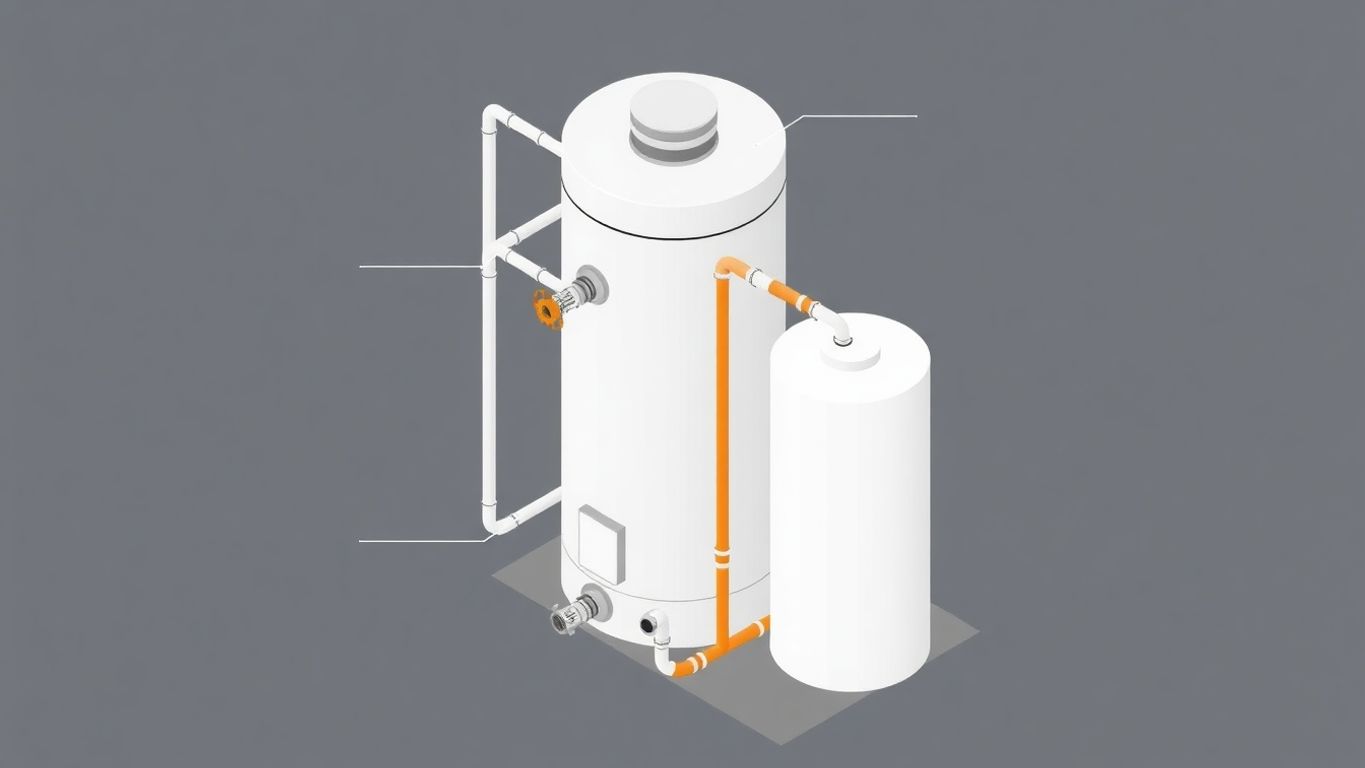
Indirect water heaters use your home’s main heating system, like a boiler or furnace, to heat water. So, what happens when the power goes out?
Indirect water heaters don’t heat water themselves. They depend on your primary heating system to do the work. If your boiler or furnace needs electricity to run, your indirect water heater won’t work during a power outage. This is because the main system circulates hot water to the indirect tank, which then heats your water.
If you want hot water when the power is out, you have a few choices.
It’s a good idea to know how your heating system works and what it needs to run. That way, you can plan for power outages and make sure you have hot water when you need it.
It’s best to have a pro look at your whole heating setup. They can tell you how your indirect water heater will act during a blackout. They can also suggest the best backup plan for your home. They might suggest a generator or a different kind of water heater. Getting advice from someone who knows their stuff can help you stay ready for anything.
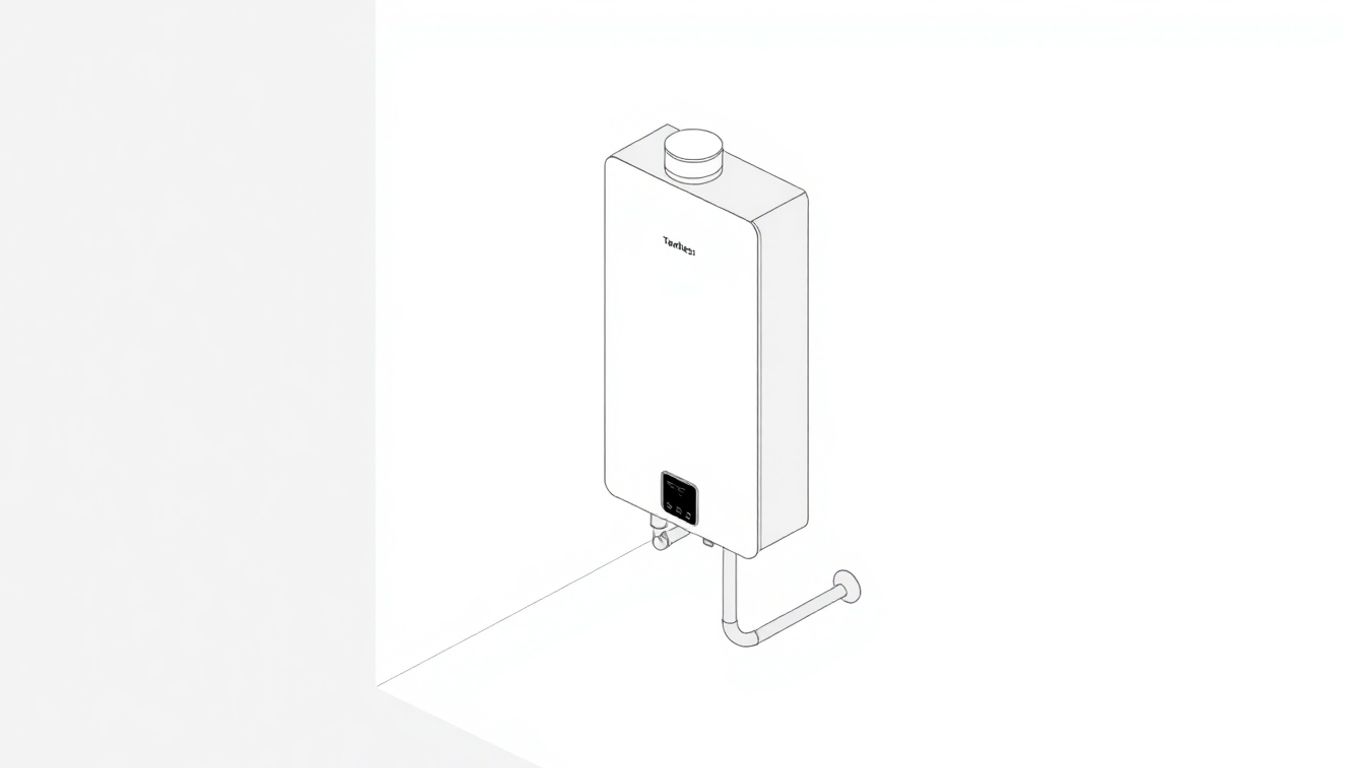
Electric tankless water heaters are great because they heat water only when you need it. But what happens when the power goes out? Let’s take a look.
Electric tankless water heaters need a lot of electricity to work. When the power is out, they can’t heat any water at all. Unlike tank heaters, there’s no stored hot water to use. You’re completely out of luck until the power comes back on. This is a big deal if you rely on hot water for things like showers or washing dishes. If you’re considering an upgrade, think about how often you experience power outages.
If you want hot water during a blackout, you’ll need a backup system. Here are a few options:
Having a backup system can give you peace of mind. It means you won’t have to worry about cold showers during a power outage. It’s all about being prepared.
It’s a good idea to talk to a professional about the best backup solution for your home. They can help you figure out how much power you need and recommend the right system. They can also install the system safely and make sure it works correctly. Getting professional advice can save you time and money in the long run.
Gas tankless water heaters are great because they heat water only when you need it. But what happens when the power goes out? It depends on the model. Let’s look at how these heaters work during a power outage.
Even though gas tankless heaters use gas to heat water, they often need electricity to work. Many models use electricity for the ignition, control systems, and fans. Without power, these parts can’t do their jobs. This means no hot water, even though you have gas.
Some gas tankless water heaters have battery backup systems. These batteries kick in when the power goes out. They power the ignition and control systems, so you can still get hot water. Check if your heater has this feature, or if you can add it. It can be a lifesaver during a blackout.
When you’re buying a gas tankless water heater, think about power outages. Look for models with battery backups. Also, consider how much power the heater needs. Some use less power than others. Talking to a professional can help you pick the best model for your needs. They can help you figure out what will work best for your home and situation.
It’s a good idea to understand how your gas tankless water heater works. Knowing what to expect during a power outage can help you prepare. Consider backup options to make sure you always have hot water when you need it.
Solar water heaters use the sun to heat water. This can be great, but what happens when the power goes out? It depends on the system. Let’s look at how these heaters work during outages.
Solar water heaters can still work when the power is out, as long as there’s enough sunlight. The sun heats the water directly, so you don’t always need electricity. If it’s a sunny day, you can still get hot water even if the power is off. However, this isn’t always the case.
Some solar water heaters use electric pumps to move water. If your system has one of these pumps, it won’t work without power. This means no hot water, even if the sun is shining. It’s important to know if your system needs electricity to work. If it does, you might want to think about a backup plan. Consider backup pump options.
To make your solar water heater more reliable, think about upgrades. You could add a battery backup for the pump. Or, you could get a system that doesn’t need electricity to move water. Talk to a professional to see what solar water heater options are best for you. They can help you make sure you have hot water, even when the power is out.
Solar water heaters are a great way to save energy. But, it’s important to know how they work during power outages. With the right setup, you can still have hot water even when the lights are off.
Power outages can be a pain, but with a little planning, you can still have hot water. Let’s look at some ways to get ready.
Battery backup systems can keep your water heater running during a blackout. These systems store electricity and kick in when the power goes out. Make sure the battery has enough power for your water heater’s needs. It’s a good idea to check the battery regularly to make sure it’s charged and working right.
Standby generators are another option. They automatically start when the power goes out. Generators can power your whole house, including your water heater. This is a bigger investment, but it gives you more peace of mind. You’ll need to have it installed by a pro, and you’ll need to keep it maintained.
There are other ways to get hot water without your regular water heater.
Planning ahead can make a big difference. Think about what you need to stay comfortable during a power outage. Having a backup plan for hot water can make things a lot easier.
It’s a bummer when the power goes out, especially when you want a hot shower. Let’s look at how to keep the hot water flowing, even when the lights are off.
First, know what kind of water heater you have. Is it electric, gas, or solar? Electric heaters are totally dependent on power. Gas heaters might work if they have a pilot light, but newer ones often need electricity. Solar heaters can work if it’s sunny, but they might need electric pumps. Knowing your heater’s type is the first step.
Think about getting a pro to check your system. They can suggest ways to make sure you have hot water even when the power is out. This could mean adding a battery backup, a generator, or even switching to a different type of heater. A water heater repair service can help you figure out what’s best for your home.
Don’t forget to keep your water heater in good shape. Regular check-ups can stop problems before they start. This means your heater will work better, and you’ll be less likely to have issues during a power outage. Here are some things to keep in mind:
Keeping your water heater well-maintained is like changing the oil in your car. It helps it run smoothly and last longer. A little care can go a long way in preventing headaches down the road.
Here’s a simple table showing how different heaters behave during outages:
| Heater Type | Works During Outage? | Notes |
|---|---|---|
| Electric Tank | No | Completely dependent on electricity. |
| Gas Tank (Pilot) | Maybe | If it has a standing pilot light. |
| Gas Tank (Electric) | No | Needs power for ignition and safety features. |
| Solar | Maybe | Depends on sunlight and pump type. |
No, electric water heaters need power to work, so they won’t provide hot water when the electricity is out.
Some gas water heaters with a pilot light can still work without electricity, but newer models often need power for ignition.
Solar water heaters can work if there’s enough sunlight, but some may need electricity for pumps to circulate the water.
Yes, you can install a generator or a hybrid system that uses both gas and electricity to ensure hot water is available.
Consider using a portable propane water heater or a battery backup if your water heater depends on electricity.
You can install battery backups, standby generators, or have alternative hot water solutions ready.
An indirect water heater uses your home’s main heating system. If that system needs power, the water heater won’t work during an outage.
Regular maintenance and consulting with professionals can help you keep your water heater in good shape and ready for outages.

